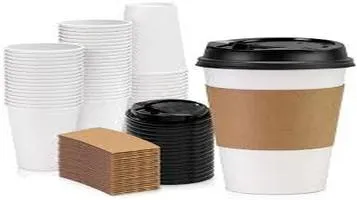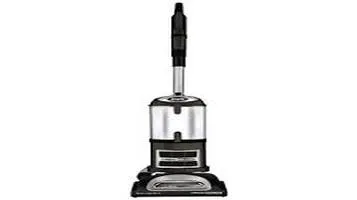Disposable Cups: Convenience at a Cost
Disposable cups are single-use containers designed for holding beverages. Typically made from paper, plastic, or foam materials, these cups offer convenience and ease for both consumers and businesses, especially in settings like coffee shops, fast-food restaurants, and events. Their lightweight nature and low cost make them a popular choice for serving hot and cold drinks. Paper cups are often lined with a thin layer of polyethylene to prevent leakage, while plastic cups are favored for their durability and transparency. Foam cups provide excellent insulation, keeping drinks at their desired temperature longer. However, the environmental impact of disposable cups has sparked discussions about sustainability, leading to increased efforts in recycling, composting, and the development of biodegradable alternatives to reduce waste.

In an era defined by convenience and a fast-paced lifestyle, disposable cups have become an integral part of our daily routines. Whether you're grabbing a morning coffee on your way to work, sipping on a refreshing iced tea at a summer picnic, or enjoying a soft drink at a sporting event, disposable cups are ubiquitous. However, this convenience comes with its own set of pros and cons, making disposable cups a subject of considerable debate.
The Convenience Factor
Undoubtedly, the most significant advantage of disposable cups is their convenience. Made from materials such as paper, plastic, or biodegradable substances, these cups are lightweight, easy to handle, and require no washing up. For businesses, particularly those in the food and beverage industry, disposable cups offer a quick and efficient way to serve customers. They are essential for events, parties, and any scenario where large numbers of people need to be served beverages quickly and efficiently.
Disposable cups also cater to our on-the-go lifestyle. With many of us leading busy lives, the ability to grab a coffee or a smoothie and continue with our day without worrying about returning or washing a cup is immensely appealing. Moreover, for outdoor activities such as camping or picnics, disposable cups are a convenient option, eliminating the need to carry heavy and breakable glassware.
The Economic Aspect
From a business perspective, disposable cups can be a cost-effective solution. They reduce the need for dishwashing facilities and staff, and they eliminate the risk of breakage associated with glass cups. For small businesses and startups, the low initial investment in disposable cups can be a financial boon. Additionally, the branding opportunities that disposable cups offer are notable. Custom-printed cups can serve as mobile advertisements, increasing brand visibility and reinforcing brand identity.
Environmental Impact
However, the convenience and economic benefits of disposable cups come at a significant environmental cost. The production, use, and disposal of disposable cups contribute to pollution and waste. Traditional plastic cups are notorious for their environmental impact, as they are made from petroleum-based plastics that can take hundreds of years to decompose. Even paper cups, often perceived as a more eco-friendly option, are typically lined with a thin layer of plastic to prevent leaks, making them difficult to recycle.
The sheer volume of disposable cups used globally is staggering. According to some estimates, the world uses around 500 billion disposable cups each year. This immense consumption results in vast amounts of waste, much of which ends up in landfills or, worse, in our oceans. The environmental footprint of disposable cups extends beyond waste; the production process itself is resource-intensive, consuming significant amounts of water, energy, and raw materials.
Biodegradable and Compostable Alternatives
In response to the growing environmental concerns, there has been a surge in the development and use of biodegradable and compostable disposable cups. These cups are made from materials such as cornstarch, sugarcane, and other plant-based resources, which decompose more quickly and have a lesser environmental impact. While these alternatives are a step in the right direction, they are not without their challenges. Compostable cups, for instance, require specific conditions to break down effectively, conditions that are not always met in standard landfill environments. Furthermore, the infrastructure for industrial composting is not universally available, limiting the effectiveness of these eco-friendly options.
Consumer Responsibility and the Future
The future of disposable cups hinges on a combination of consumer responsibility, innovative design, and improved waste management systems. Consumers can play a crucial role by making informed choices, such as opting for reusable cups when possible or choosing products made from sustainable materials. Businesses, on the other hand, can invest in eco-friendly alternatives and support recycling and composting initiatives.
Innovation in the design and production of disposable cups is also vital. Advances in materials science are paving the way for new types of disposable cups that are not only easier to recycle but also have a lower environmental impact. Governments and regulatory bodies can further aid this transition by implementing policies that encourage sustainable practices, such as banning single-use plastics or providing incentives for businesses that adopt green alternatives.
Conclusion
Disposable cups epitomize the modern dilemma of convenience versus environmental responsibility. While they offer undeniable benefits in terms of convenience and cost, their environmental impact cannot be ignored. The shift towards more sustainable alternatives and responsible consumption habits is essential for mitigating the negative effects of disposable cups. As consumers, businesses, and policymakers work together towards more sustainable solutions, we can hope for a future where the convenience of disposable cups does not come at the expense of our planet.






